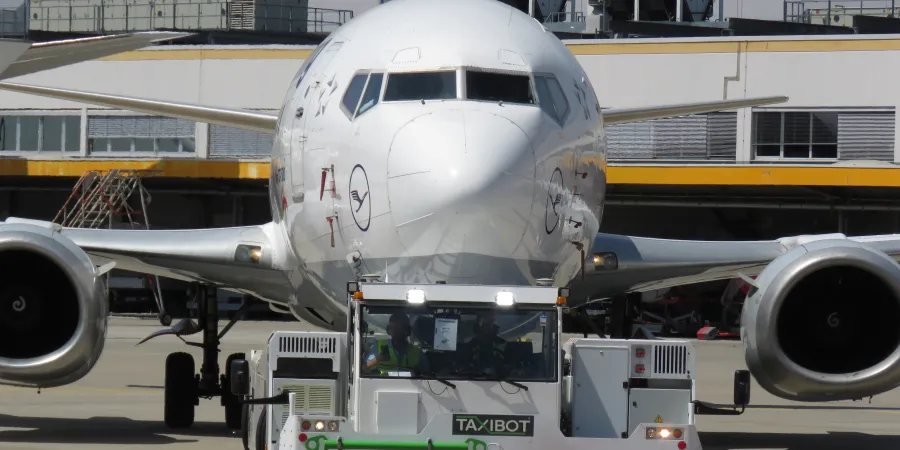IAI to Operate TaxiBot Vehicles in New Delhi, Mumbai Airports
The Indian government regards the TaxiBot as a significant means for addressing the grave air pollution issues in airports, which are exacerbating due to the continued growth of air transportation
IsraelDefense
| 22/07/2018
Israel Aerospace Industries (IAI) entered an agreement with KSU from India for operating TaxiBot vehicles in New Delhi and Mumbai airports. The contract will be implemented in two stages. In the first phase, TaxiBot vehicles will be delivered to the airports and run in a controlled trial until the end of 2018. The second phase will involve the delivery of 38 additional vehicles in four years to New Delhi and Mumbai airports as well as to the general Indian market. The contract was signed against the backdrop of the fast growth of India’s aviation market (20% a year in the past three years), which will soon be named as the third largest aviation market in the world.
TaxiBot is a semi-robotic vehicle that connects to the aircraft and is controlled by the pilot to taxi the airplane from the airport’s jet bridge (“sleeve”) to the runway with no use of the aircraft main jet engines. The hauling of the aircraft by the TaxiBot saves 85% of the fuel consumed during standard taxi and provides a similar reduction of 85% of the greenhouse gases emitted by the aircraft's main engines. Taxiing with the TaxiBot reduces noise levels by 60% and foreign object damage by 50% as foreign objects can’t be sucked into the aircraft engines if they are not running.
The Indian government regards the TaxiBot as a significant means for addressing the grave air pollution issues in airports, which are exacerbating due to the continued growth of air transportation. The final tests of the vehicles designated for New Delhi Airport are being completed now in Frankfurt airport with the support of Lufthansa LEOS and TLD, as part of the ongoing collaboration with IAI.
The Indian government regards the TaxiBot as a significant means for addressing the grave air pollution issues in airports, which are exacerbating due to the continued growth of air transportation
Israel Aerospace Industries (IAI) entered an agreement with KSU from India for operating TaxiBot vehicles in New Delhi and Mumbai airports. The contract will be implemented in two stages. In the first phase, TaxiBot vehicles will be delivered to the airports and run in a controlled trial until the end of 2018. The second phase will involve the delivery of 38 additional vehicles in four years to New Delhi and Mumbai airports as well as to the general Indian market. The contract was signed against the backdrop of the fast growth of India’s aviation market (20% a year in the past three years), which will soon be named as the third largest aviation market in the world.
TaxiBot is a semi-robotic vehicle that connects to the aircraft and is controlled by the pilot to taxi the airplane from the airport’s jet bridge (“sleeve”) to the runway with no use of the aircraft main jet engines. The hauling of the aircraft by the TaxiBot saves 85% of the fuel consumed during standard taxi and provides a similar reduction of 85% of the greenhouse gases emitted by the aircraft's main engines. Taxiing with the TaxiBot reduces noise levels by 60% and foreign object damage by 50% as foreign objects can’t be sucked into the aircraft engines if they are not running.
The Indian government regards the TaxiBot as a significant means for addressing the grave air pollution issues in airports, which are exacerbating due to the continued growth of air transportation. The final tests of the vehicles designated for New Delhi Airport are being completed now in Frankfurt airport with the support of Lufthansa LEOS and TLD, as part of the ongoing collaboration with IAI.



